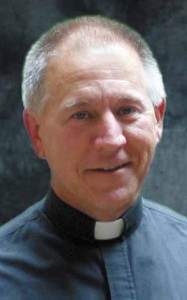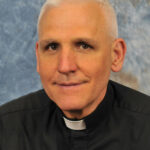By Fr. Bud Grant
This is Part II of a series on “Laudato Si.” In the first installment I proposed a careful look at the preface, organization, sources, footnotes, vocabulary, etc. in order to gain some initial intimation about what the Holy Father is doing.

Francis is grounded in the Social Justice heritage of Catholic Church teaching. He draws from a diverse variety of sources, and he addresses himself to “the whole world.” Paragraph 15 sums up the five goals of this first-ever encyclical on the environment: ecological crises impose a moral and spiritual responsibility on us; the Judeo-Christian tradition helps us to understand our responsibility; we are in relationship with the rest of creation; international policies must change; and, finally, the “treasure of Christian spiritual experience” enables us to change.
Now we can look at the text itself. The first chapter makes two primary points: that the environmental crisis is a serious threat and that the two prongs of the crisis are ecological and “social.” Among the ecological dimensions, the Holy Father specifies pollution, climate change, water quality, loss of natural resources and biodiversity (20-42). “Social,” for Pope Francis, encompasses economic, political and cultural, as well as social relationships (43-59).
Let us put this on the table immediately. The pope accepts as scientifically verified that climate change is real, advanced and anthropogenic (23). At the same time, he only mentions this problem 12 times (six times in just three paragraphs). Why? Because (1.) He doesn’t want to get sucked into what is really an ideological debate concerning size-of-government (which is, it seems, at the heart of most “climate denier” concerns) and (2.) Because it isn’t the core problem: overconsumption is.
Overconsumption or, as he calls it, “a throwaway culture,” excludes the poor and “reduces things to rubbish” (22). Notice the implied connection between economic injustice and overconsumption. Resources are finite.
When some consume more, there are fewer resources for others. World Bank data suggests that the USA consumes about three times as much as China, though it is about four times our population. Slightly more populous than Indonesia, we consume about 18 times as much. Put another way, it would require 3.9 planet earths for everyone on the earth to consume resources and pollute like the United States. Globally, consumption rates are at 1.5 of carrying capacity (i.e. 1-1/2 planet earths). The rich can afford to consume more, the poor can’t. Thus, there are “differentiated responsibilities”: the wealthy have a deeper moral and spiritual responsibility to reduce consumption than do the poor (52). This constitutes what I call redistributive suffering (93-95): the rich should, like Simon of Cyrene, take the burden of the cross off the shoulders of the poor Christ (Mt. 27:32).
Overconsumption is the root cause of both environmental and social crises, which is really “one complex crisis” (139). Pope Francis does not blame overpopulation, which he considers an issue of “density” (50). Population growth is alarming: from seven billion to nine billion to 10 billion or even 11 billion by late this century (the earth first experienced 1 billion people only 200 years ago). Resources like drinking water, agricultural land and wild fisheries are all declining — some precipitously. But Pope Francis insists that “to blame population growth instead of extreme and selective consumerism on the part of some is one way of refusing to face the issues” (50). Put another way, according to The Guardian, it is disingenuous to blame the world’s poor instead of “the ravenous demands of the rich world … pumping greenhouse gases into the air, polluting the oceans, trashing forests …. rise in numbers of poor people will barely figure in that” (10.19.14).
One more issue: economic systems are calibrated to growth, that is, more consumption equals good economy and vice versa. If the Holy Father is right (along with loads of economists, strategists, social scientists and even the World Bank) this simply has to change (53-56). But that is a topic for a later article.
(Father Bud Grant is a professor of theology at St. Ambrose University in Davenport.)











